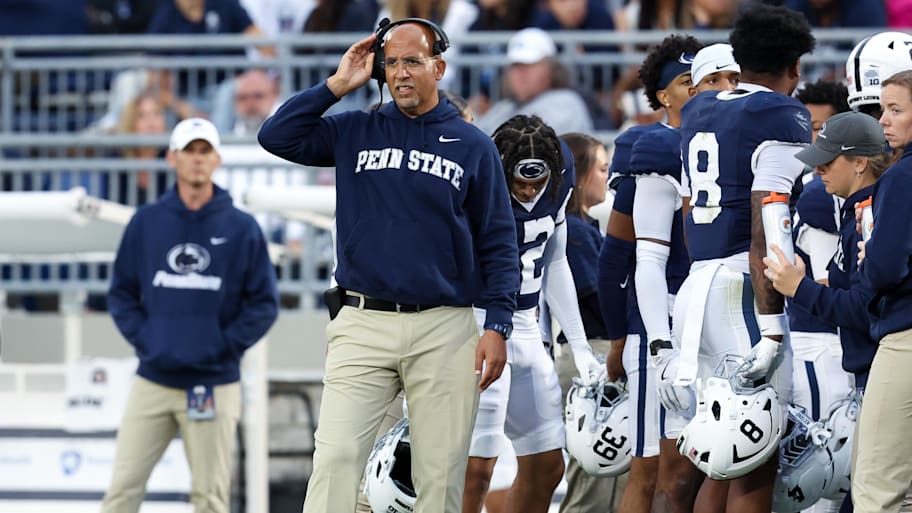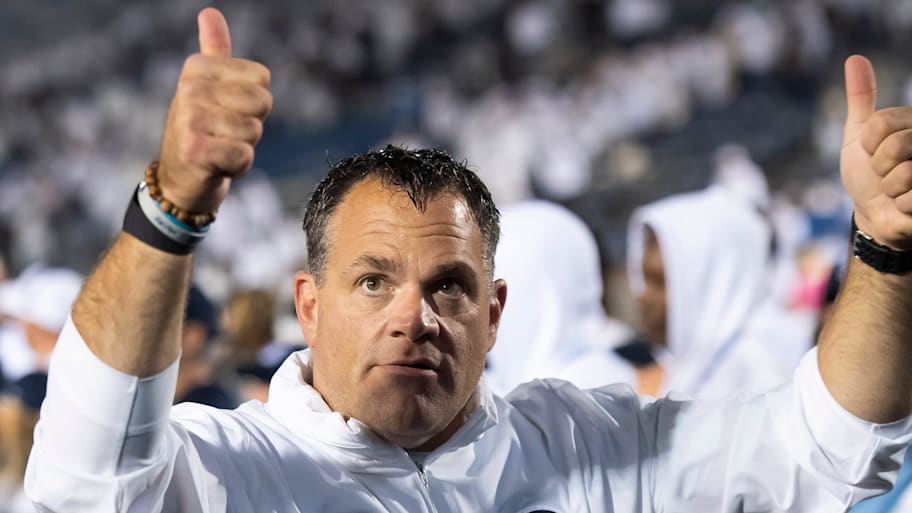
In college football, as in politics, people get tired of the incumbent. Penn State fans have felt that way about James Franklin for a few years now, even though he won a ton of games. He was either going to make them happy by winning a national championship, or he would stumble and get thrown out of office.
It feels unprecedented. But Franklin’s tenure in State College ended in pretty much the same way, and for the same reasons, as Andy Reid’s time with the Eagles and Dan Quinn’s with the Falcons. College sports are pro sports now, and Penn State athletic director Pat Kraft acted like a professional franchise owner: He paid a successful coach to go away so he could go hire another one. Penn State owes Franklin a $49 million buyout.
Kraft had every right to do this. But when he finds his next coach, he should keep on acting like a pro owner and offer an NFL-style contract.
Five years of salary for five years of work.
No buyout.
No escape clause.
If you want to coach Penn State, you commit to Penn State. If you want to leave, you can do so when your contract is up. Until then, you’re under contract.
If Penn State wants you to coach, Penn State pays you to coach. If the school fires you before the five years are up, it still pays you for all five years.
If Penn State and the coach are happy with each other, they can discuss an extension that will kick in starting in Year 6.
If the coach (or his agent) says no, then Penn State should move on to the next candidate.
This is the simplest, most straightforward version of a contract, and it’s the one that makes the most sense. When the Patriots hired Mike Vrabel last year, they did not give him an out to pursue the Rams job if it opens up. Why should Penn State conduct business any differently?
The wildest part of Franklin’s $49 million buyout is that it’s even more ridiculous than it appears. Imagine this actually-pretty-easy-to-imagine alternate history:
It is December 2024. Ohio State, still stunned by its fourth straight loss to Michigan, gets upset at home by Tennessee. People in Columbus are tired of the incumbent failing to win big games, so Ohio State fires Ryan Day. Meanwhile, Penn State beats Notre Dame in overtime to head to the national title game against Texas. The Nittany Lions lose, PSU fans resume complaining about Franklin, and Ohio State needs a coach.
Ohio State offers Franklin a record-breaking contract. He takes it.
For leaving Penn State in the middle of his contract, he owes the school $2 million.
Yup: Penn State had to pay $49 million to get out of the deal, but Franklin could have left for just $2 million.
Franklin stayed, of course … and received a $500,000 “retention bonus” for doing so.
This is not a criticism of Franklin. He rebuilt a top-10 program and used the leverage he had. In 2021, LSU and USC had openings. Franklin was thought to be a prime candidate. Penn State had him under contract but was worried he would leave, as his contract allowed him to do. So the school gave Franklin a much larger contract that … um, still allowed him to leave for a relative pittance after two years.

The contract was an extraordinarily expensive marketing tool: Penn State wanted recruits to believe Franklin would stick around. Coaches’ agents have capitalized on this recruiting-based desperation for years.
That made a bit of sense back when transfers had to sit out for a year. But today’s players know they can leave at any time for any reason and play immediately at any school that wants them. They have no reason to fear the coach leaving. If he goes, they can go, too.
Also: If you want recruits to think a coach will stick around, sign him to a contract that requires him to stick around. Don’t let him walk for $2 million.
Again, look at the NFL. After Dan Campbell led the Lions to the NFC Championship game in his third year, other NFL teams would have loved to hire him. But they couldn’t, because he was under contract. The Lions signed Campbell to an extension anyway—not because of real or implied leverage, but because they want him in Detroit for the long term and he wants that, too.
Campbell could leave for a college job, but the risk of that is low: When his alma mater, Texas A&M, had an opening, he had zero interest. If I were an athletic director and my coach wanted an out to leave for an NFL head-coaching job, I would consider it, because the risk of him leaving is low. Michigan lost Jim Harbaugh to the NFL, but those situations are rare.
Almost everyone else in sports operates this way. It’s not just coaches. Elite young baseball players often sign long-term contracts that delay their free agency. Teams get more years of club control, and players get financial security.
Changing precedent is hard. Agents will fight it. But this is a chance for Kraft to inject some common sense into the market by showing true confidence in what he is selling.
Kraft sees Penn State as a destination job where the highest aspirations are actually achievable. He should feel that way—and he should be able to find an excellent coach who feels that way, too.
I’m not suggesting that Penn State try to save a few bucks with this hire. The school can and will pay top dollar. But an enormous commitment from the school should include a reciprocal commitment from the coach. If a coach is paid millions to say “We Are Penn State,” he ought to mean it.
More College Football on Sports Illustrated
Listen to SI’s new college sports podcast, Others Receiving Votes, below or on Apple and Spotify. Watch the show on SI’s YouTube channel.
This article was originally published on www.si.com as How Penn State Can Completely Change the Way College Football Head Coaches Are Hired.







